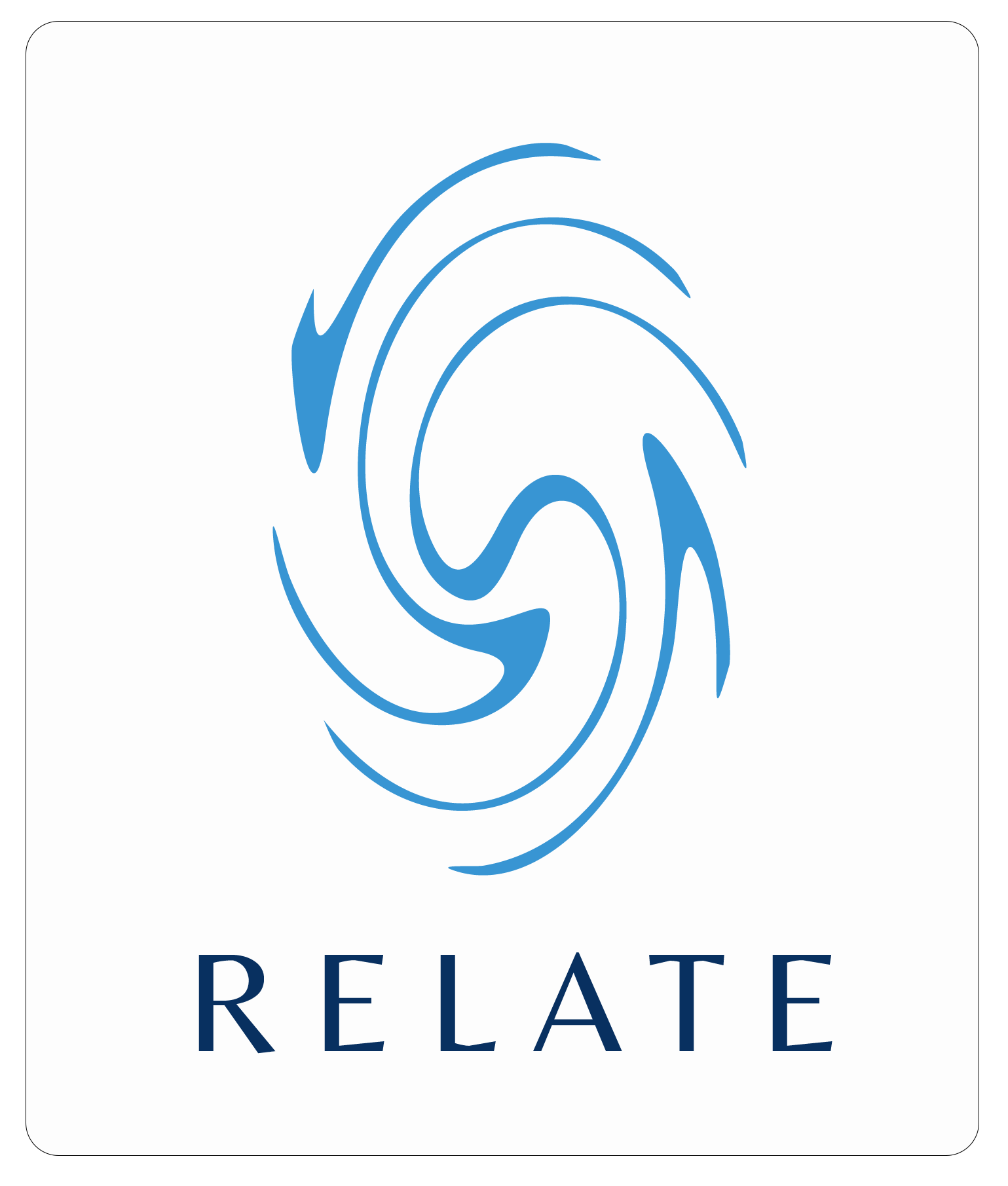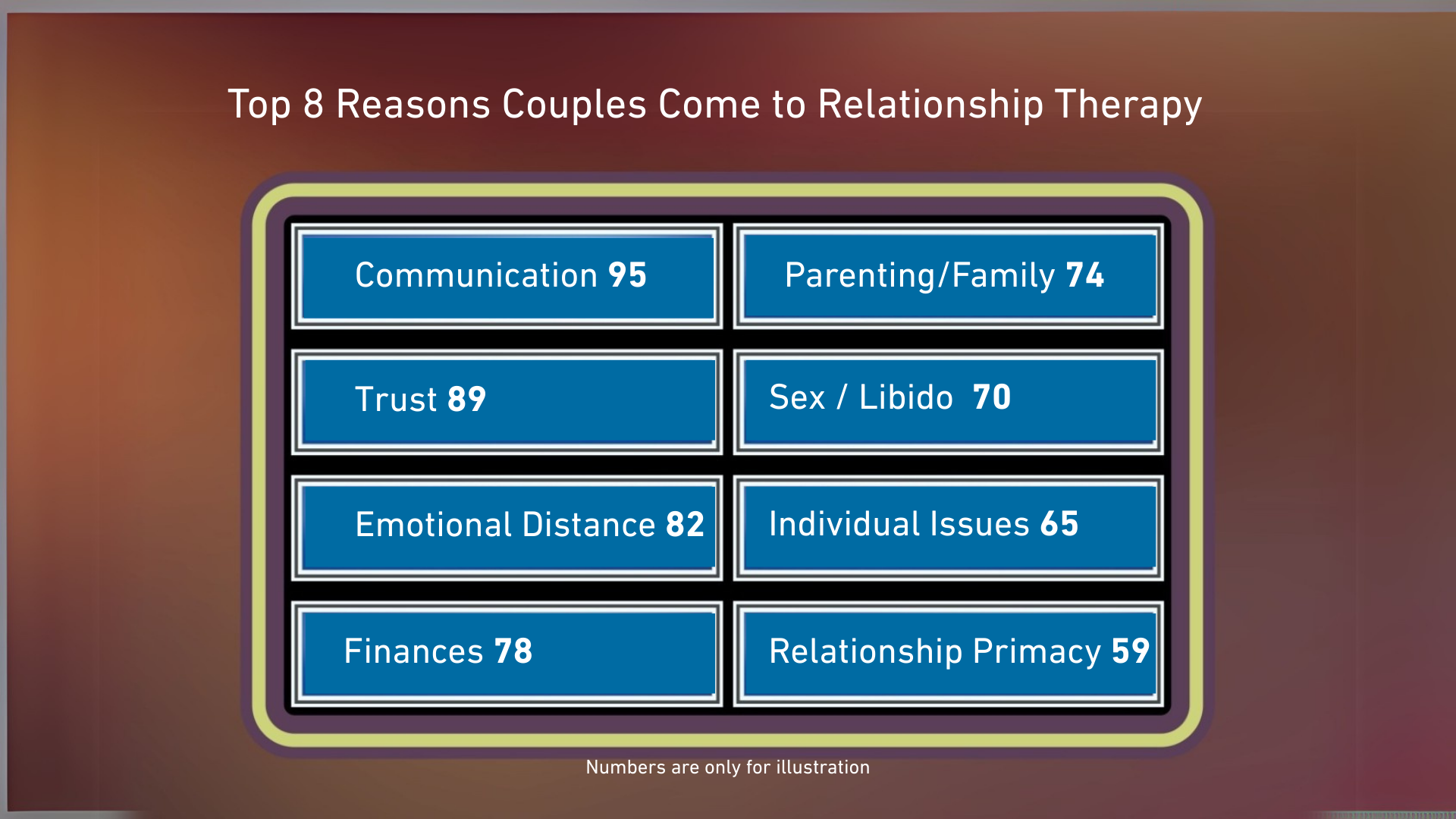Introduction: Why Appreciation Matters More Than You Think
“How do we keep the magic alive?”
It’s a question couples grapple with when the early rush of romance settles into daily life—especially for those juggling kids, careers, and the curveballs that come with any long-term relationship. At Relate, we often hear stories of individuals who feel taken for granted, resentful, or simply overlooked. And it isn’t always about grand gestures or fancy holidays.
The real secret? Appreciation. Small, everyday acts of noticing, acknowledging, and affirming your partner can dramatically transform the emotional climate of your relationship.
John Gottman, a leading researcher in couple dynamics, emphasises the importance of a positive-to-negative interaction ratio (5:1) for a stable, happy relationship. In other words, for every negative or critical moment, there should be around five positive interactions—like compliments, loving glances, or expressions of gratitude. When couples let negativity pile up unchallenged, the relationship can start to feel like a zero-sum game. But when you consciously shift your focus to what’s going well, you begin to see each other through a lens of possibility, hope, and affection.
The good news? Appreciation is a skill—one that most couples can learn with time, commitment, and perhaps a few structured exercises. It’s part of the everyday “maintenance” that keeps love bonds strong and flexible.
Watch & Reflect
Check out this insightful YouTube video that highlights the power of appreciation in relationships: If you want to learn these skills go to Relate’s School of Love
This video aligns with the Gottman approach, showing how something as simple as a heartfelt “thank you” can counteract the resentment that often leads to distance and conflict.
A Reality Check on Romance: “We All Need This”
Some might assume that regular appreciation should be natural—“If I truly love my partner, I’ll always make them feel valued, right?” But the truth is, life gets messy. The busyness of raising kids, paying mortgages, or managing deadlines can overshadow those tender gestures. You might find yourself passing like ships in the night, each too weary or preoccupied to notice what the other is bringing to the table.
Every couple that comes for relationship therapy has a story that is personal, often painful. Yet the common theme in struggling relationships is that hope is fading—not because they stopped loving each other, but because they can’t feel that love on a daily basis. Appreciation acts like a beacon, reminding both of you why you chose each other in the first place.
For those who identify with the “desperate men” scenario—where your partner has announced they’ve had enough—regular, genuine appreciation can be a lifeline. It shifts the narrative from “I’m always messing up” to “I’m learning to see and celebrate what’s good.” It won’t solve every underlying issue instantly, but it lays the emotional groundwork for deeper healing.
Understanding the Science: Why Gratitude Boosts Relationship Resilience
Research consistently shows that couples who regularly express appreciation have better communication, higher commitment, and more satisfaction over time. A study in the journal Personal Relationships found that gratitude had an especially profound effect on marital satisfaction, bolstering the sense of “we’re in this together.”
John Gottman, through decades of observing couples in his “Love Lab,” also noted that expressions of affection and appreciation act like daily deposits in an emotional bank account. When conflict inevitably arises—because let’s face it, no one is happy 24/7—couples with a well-stocked account have more resilience. They can weather disagreements without spiralling into despair or feeling that their entire relationship is doomed.
In a practical sense, appreciation triggers a release of positive neurochemicals—like dopamine—which reinforce the bond. You literally feel good because you see what’s good in your partner. And that’s the big shift: from focusing on what’s wrong to celebrating what’s right.
The “Appreciation Gap”: Why We Forget to Say “Thank You”
Ever find yourself annoyed by the smallest things—like how your partner loads the dishwasher or forgets to shut off the lights? That’s negativity bias at work, a well-known psychological principle where our brains latch onto potential threats or problems. It’s not that we’re inherently negative people, but that we’re wired to spot what’s lacking before what’s lovely.
So how do you beat negativity bias? By consciously creating moments of appreciation.
Examples:
-
Saying “Thank you for making me tea this morning—I needed that warmth”
-
Noticing the small acts of kindness, even if they seem routine: “I appreciate how you always remember to pay the phone bill.”
These tiny acknowledgments can seem insignificant, but they collectively form the emotional glue that binds you together.
Practical Ways to Foster Appreciation in Your Relationship
1. The “One Sentence” Habit
Every day, share one sentence that expresses gratitude or admiration. It could be as simple as:
“I really admire how you handled that tough call at work.”
“Thanks for folding the laundry—it saved me so much time.”
By making it a daily ritual, you train your brain to search for positive moments.
2. Weekly Appreciation Date
Book a short “date” (could be 15-20 minutes) once a week to highlight what you appreciated about each other during the week. Create a relaxed vibe—maybe sit with a glass of wine or hot chocolate—and take turns sharing.
Why it works: It affirms the positives and creates a sense of anticipation for future moments of care.
3. Gratitude Jar or Whiteboard
Put a jar or whiteboard in a visible place at home. Whenever you notice something your partner did that made you smile, write it down. At the end of the week or month, read them together.
Why it works: A physical reminder of what’s going well can outweigh the mental chatter of negativity.
4. Words of Affirmation as a Love Language
If your partner responds strongly to verbal appreciation, remember that it’s a core need, not a bonus. As Dr. Gary Chapman emphasises in his 5 Love Languages, consistent words of affirmation can restore emotional intimacy for those who hear love through compliments and recognition.
“But We Have Real Problems…”: Using Appreciation Amid Conflict
It’s tempting to think: “Appreciation is nice, but we’re struggling with real issues like trust breaches, financial stress, or emotional distance. A few compliments won’t fix that.” True enough. But appreciation isn’t about ignoring or minimising problems—it’s about shifting the emotional climate so you can tackle problems together.
Gottman’s research underscores this. When couples lead with acknowledgment and empathy, they’re more likely to engage productively in conflict resolution. Conversely, couples who habitually criticise or ignore each other’s contributions often get stuck in never-ending cycles of blame and defensiveness.
When you pair appreciation with open communication about the big stuff, you create a foundation of mutual respect. It’s easier to say, “We need to talk about finances” when you already feel safe in the knowledge that your partner values you.
How Relate’s School of Love Can Strengthen Appreciation Habits
No couple is automatically good at this stuff. And that’s okay. Relate’s School of Love at Relate.online is designed to help couples build solid relational skills, including the practice of appreciation.
What to Expect:
-
Interactive lessons on communication, empathy, and daily connection
-
Practical exercises for implementing small yet transformative rituals
-
Self-paced modules that fit your busy schedule
-
Guidance from experienced relationship experts who understand real-world challenges
Remember, you don’t have to reinvent the wheel alone. Sometimes having a step-by-step structure can jump-start that sense of hope and direction you might feel is slipping away.
When Professional Help Makes the Difference
For deeper issues—like betrayal, ongoing conflict, or emotional disconnection—an online course might not be enough. That’s where professional support comes in. Relate’s Therapy Team offers personalised guidance to help you untangle complex situations and build a more resilient relationship. Whether you’re dealing with:
-
Historical trust breaches that still sting
-
Communication breakdowns that lead to constant tension
-
Desperate pleas from one partner who feels the spark is gone
A therapist can provide the insight and tailored strategies needed to shift the dynamic long term. Often, couples who’ve tried “going it alone” find that outside perspective helps them break old patterns and discover solutions they hadn’t considered.
Real Stories: The Transformation Appreciation Sparks
Case Example: Sam & Kelly
After nine years of marriage, Sam felt neglected because Kelly was juggling a demanding job and full-time study. Kelly felt Sam didn’t appreciate her sacrifices. They were caught in a “You don’t see what I do!” loop. In therapy, they started a simple gratitude exercise each night—each one stating just one thing they appreciated about the other that day. Within weeks, Sam and Kelly reported feeling “closer than we’ve been in years.” By acknowledging the positive, they defused the tension that overshadowed their interactions.
It’s not a fairy-tale fix. Life still threw challenges at them. But they now had a shared emotional reservoir of good feelings that made working through issues easier.
Encouragement for the Future: Anyone Can Learn Appreciation
Let’s be honest: relationships can sometimes feel “doomed.” Work stress, parenting struggles, or personal insecurities might crush your spirit. You might find yourself repeating lines like: “We used to be so close—what happened?” But here’s the truth: most couples simply need better relationship skills.
Appreciation isn’t about pretending problems don’t exist. It’s about counter-balancing life’s inevitable hurdles with deliberate, heartfelt, and consistent expressions of gratitude. And yes, it’s something you can learn and sharpen over time.
If you’re reading this, there’s likely a part of you that still believes in the “happily ever after” story—maybe not the perfect fantasy, but a committed partnership that feels alive, supportive, and loving. That’s absolutely possible when you introduce these appreciation-focused habits and give them time to work their magic.
Conclusion: Small Steps Create Big Shifts
Appreciation might sound almost too simple, but it’s a profound act of focusing on what’s good. In a world filled with stressors, negativity, and endless to-do lists, consistently choosing to notice and praise your partner’s efforts or qualities is a game-changer. It’s the difference between living on emotional crumbs and enjoying a buffet of love, warmth, and connection.
What Next?
-
Watch the YouTube video above for insights straight from Relate’s School of Love.
-
Consider enrolling in Relate’s School of Love to learn practical daily rituals that keep positivity alive.
-
Reach out for professional therapy if you sense deeper issues need untangling.
Remember, your relationship isn’t doomed. You and your partner are more resilient than you think. By weaving regular appreciation into the fabric of your everyday life, you create a powerful shield against resentment, disconnection, and despair. And that’s what real love maintenance is all about.






